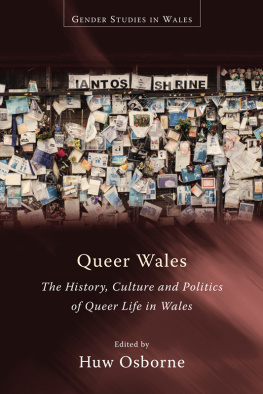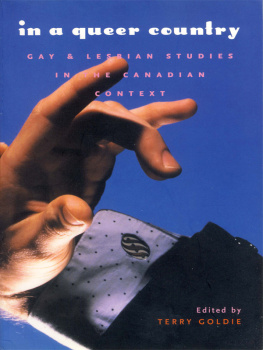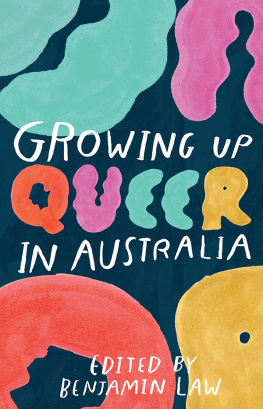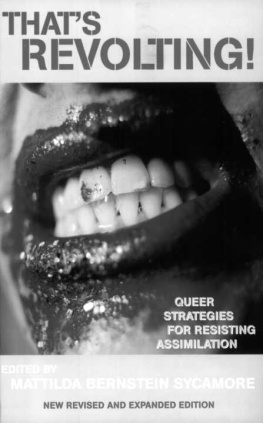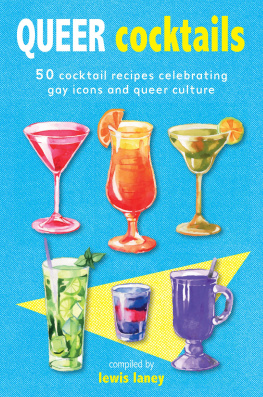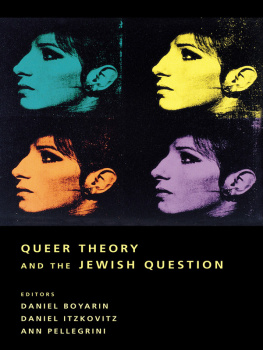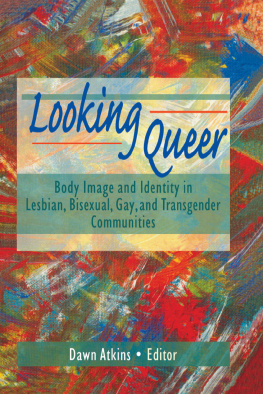Museums & Social Issues
A Journal of Reflective Discourse
Volume 3 Number 1 Spring 2008
Where Is Queer?
Edited by John Fraser and Joe E. Heimlich
First published 2008 by Left Coast Press, Inc.
Published 2016 by Routledge
2 Park Square, Milton Park, Abingdon, Oxon OX14 4RN
711 Third Avenue, New York, NY 10017, USA
Routledge is an imprint of the Taylor & Francis Group, an informa business
Copyright 2008 Taylor & Francis
All rights reserved. No part of this book may be reprinted or reproduced or utilised in any form or by any electronic, mechanical, or other means, now known or hereafter invented, including photocopying and recording, or in any information storage or retrieval system, without permission in writing from the publishers.
Notice:
Product or corporate names may be trademarks or registered trademarks, and are used only for identification and explanation without intent to infringe.
Send manuscript correspondence to Kris Morrissey, Director, Museology Program, University of Washington, Seattle, WA. Phone (206) 685-8207
Production and Composition by Detta Penna, Penna Design, Abbotsford, British Columbia
ISBN 13: 978-1-5987-4807-9 (pbk)
Museums & Social Issues
A Journal of Reflective Discourse
Volume 3 Number 1 Spring 2008
Where Is Queer? Edited by John Fraser and Joe E. Heimlich
| Kris Morrissey |
| John Fraser and Joe E. Heimlich |
| James H. Sanders, III |
| Stuart Frost |
| Robert Mills |
| Paul Gabriel |
| Andrew Gorman-Murray |
| Donna M. Mertens, John Fraser, and Joe E. Heimlich |
| Joe E. Heimlich and Judy Koke |
| Edward J. Phillips |
| Anne W. Clark and Geoffrey B. Wexler |
| Stacia Kuceyeski |
| Reviews |
| Kathleen Condon |
| Resources |
Museums & Social Issues
A Journal of Reflective Discourse
| Editor: | Kristine Morrissey |
| Director of Museology |
| University of Washington |
Editorial Board
Robert R. Archibald , President, Missouri Historical Society
John R. Fraser, Director, Public Research and Evaluation, Wildlife Conservation Society Institute, Wildlife Conservation Society, Bronx, NY
George E. Hein, Professor Emeritus, Lesley University; President, TERC
Judith Koke , Senior Research Associate, Institute for Learning Innovation, Annapolis, MD
Randi Korn, Director, Randi Korn & Associates, Inc., Alexandria, VA
Melanie Overby, University Of Michigan, Ann Arbor
Lisa Roberts, Consultant, Chicago, IL
Marjorie Schwarzer, Chair, Department of Museum Studies, John F. Kennedy University, Berkeley, CA
Lois H. Silverman, Museums in Social Service, Bloomington, IN
Douglas Worts, Interpretive Planner, Canadian Art Department, Art Gallery of Ontario, Toronto
Where Is Queer?
Edited by John Fraser and Joe E. Heimlich
Editorial Assistant: Denice Blair Leach
Language as Context: Can I say Queer if Im not?
Thinking differently requires speaking differently.
George Lakoff
Using the word "queer" is like dropping a pebble in a pond. Or more accurately, it's like a dropping a boulder into a pond: Ka-ploom! "But you're not going to use 'that' word, are you?" was the response I repeatedly got when I mentioned the title of this issue. Each time, I wondered, "Can we?" "Should we?" What are the rules for who can use 'that word' and where? While the co-editors were comfortable with using the word queer, can a heterosexual person use it? Would I be judged, defined, assessed, even criticized for talking about (or printing) "queer" in public?
The complexity and the power associated with language is evident in the many disciplines, books, courses and talk shows that focus on the disparate ways we use and interpret words. Words have their own lives, histories, boundaries, geographies, their own gender and identity, and their own ability to give or withhold power. The ambiguity and nuance of the words we choose leaves us vulnerable to others' perceptions or assumptions. But there is no better context for finding shared meaning, building relationships, and creating futures than the context of language. So how do we use language wisely, ethically, thoughtfully and with integrity?
George Lakoff is known for his ability to decode the ways politicians, in particular, selectively use specific words to frame issues in their favor. If frames are mental structures that shape the way we see the world, "framing" (as a verb) is about getting the right words that fit our world-view and connect to our identity, beliefs, and values. Concepts or facts are not enough to change someone's world-view; change requires finding alternative frames that incorporate our strongly held values and beliefs. For example, Lakoff suggests that the resistance to same-sex marriages may be more related to the terminology of "gay marriage" than the widely held American belief that individuals should love and commit to whomever they please.
The task of updating a website requires breaking the links between buttons and files, to upload or refresh new files. Does the word queer break the connection between old frames recalled by terms such as 'gay', 'lesbian', and bisexual'? Queer has been adopted as a fighting word, appropriated by those from the LGBTQ community as an integrating term, although many in those communities still bristle at the use because they remember it as a taunt. As editors, when we made the decision to move forward with this issue, we did so knowing that this term will continue to be contentious for at least the foreseeable future. However, starting with breaking the link-attempting to reframe the conversation-gives us a chance to renegotiate how we talk about gender, sexuality, and identity as separate and vital concepts. To borrow from one of our authors, we need to take the scary words out of the closet and place them in the daylight to collectively and thoughtfully create and adopt new language that will call upon new worldviews.
"Thinking differently requires speaking differently," Lakoff suggests. And reframing is everyone's job.
My thanks to John Fraser and Joe Heimlich for their tremendous effort in framing this publication. Their passion, knowledge and vision were an inspiration.
Kris Morrissey
Reference
Lakoff, G. (2004). Don't think of an elephant ! White River Junction, VT: Chelsea Green Publishing.
John Fraser and Joe E. Heimlich
About the authors John Fraser is an architect and conservation psychologist serving as Director, Public Research and Evaluation, for the Wildlife Conservation Society, based at its flagship headquarters, Bronx Zoo. He is currently a doctoral candidate and adjunct faculty at Antioch University New England, adjunct faculty at CUNY Hunter College's Psychology Department and a CERC Scientist at Columbia University. His research focuses on how public social experiences contribute to collective identities and how those identities link to advancing more responsible civic behavior.


